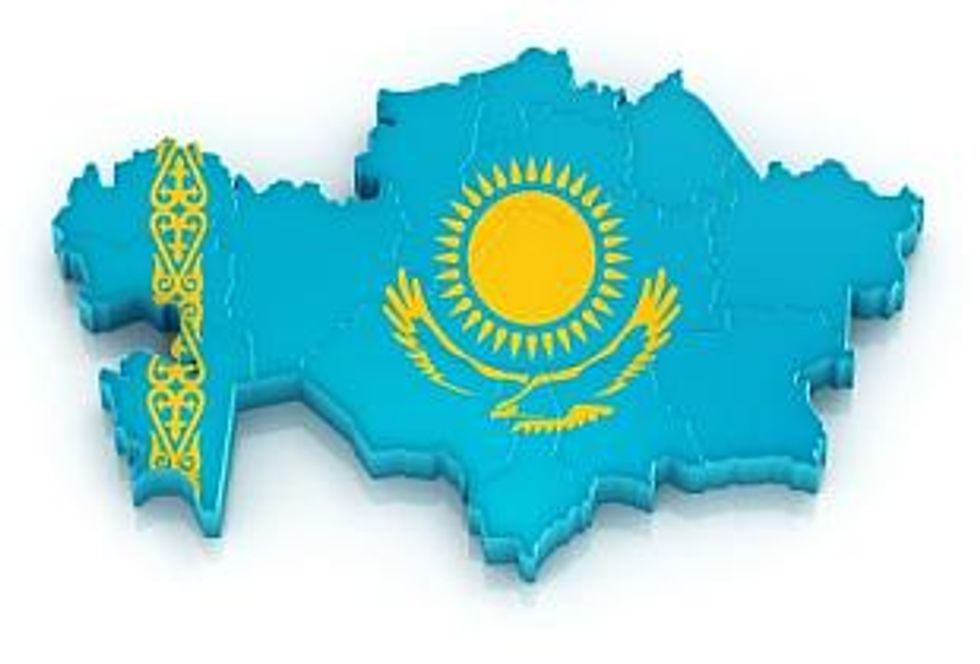Central Asia Spotlight: Kazakhstan - Maintaining Stability Key to Untapped Natural Resources
Recent political tensions in Kazakhstan undoubtedly raises the risk factor for foreign resource companies; however, it’s the country’s vast store of untapped resources—including oil, gas, uranium, rare earths and potash—that ensures world leaders will be pushing hard to create and maintain stability.
By Melissa Pistilli—Exclusive to Resource Investing News
Recent political tensions in Kazakhstan may have investors concerned over the level of risk to western miners operating in the Central Asian nation, but Europe’s largest national economy seems undeterred.On February 8, Germany’s Chancellor Angela Merkel and Kazakhstan’s President Nursultan Nazarbayev signed a strategic agreement granting German companies exploration and mining rights in Kazakhstan in exchange for nearly $4 billion in technological, railway and other infrastructural and industrial investments.
The move is clearly an effort to circumvent China’s growing stranglehold over the global supply of several raw materials crowned as “critical” or “strategic” to western economies and national security interests.
Central Asia has been a center for global power struggles since the fall of the USSR. Russia, China, the United States and India have been vying for a piece of the Stans pie as a matter of geopolitical strategy. While the “geo” in geopolitical represents the region’s geographical significance for trade and military strategy, Central Asia’s rich geological assets have also become of major political importance for the world’s most powerful nations—making the region a strategic theater in the battle for global resources and economic dominance.
“The Stans are host to vast amounts of natural resources, many of which were underexploited during the years of Soviet rule,” explains MoneyMorning’s James McKeigue. “As a result, the last ten years have seen a horde of Russian, Chinese and Western firms pile into central Asia in a dash to secure the best assets.”
Kazakhstan: Central Asia’s economic powerhouse
Of the five Central Asian Republics (CARs), Kazakhstan has proven to be the most politically and economically stable, two important factors for attracting foreign investment for mining development.
According to McKeigue, Kazakhstan holds 3 percent of global oil reserves, 4 percent of global coal reserves and an impressive 15 percent of global uranium reserves—positioning the nation as a major player in the world’s energy-related resource market. The Central Asian nation is also home to “the world’s largest reserves of zinc, lead and chromite, and it is in the top ten for supplies of copper, iron ore, gold and manganese.”
Between, 2000 and 2007, Kazakhstan’s economy posted better than 9 percent growth per year. The majority of this growth was fueled by the burgeoning mining industry. The global economic crash in 2008 pushed the country into a recession, but the Kazakh government’s devaluation of the tenge and $19 billion economic stimulus program led to a quick recovery. In 2010 and 2011, the Kazakh economy grew by nearly 7 percent per year; a similar growth rate is expected for 2012. In November, Standard & Poor’s gave the country a long-term credit rating of BBB+ citing a stable outlook.
Citibank Russia and CIS economist Natalia Novikova says Kazakhstan is “in a relatively good situation compared to some other countries. We expect the global slowdown one way or another to cause a decrease in growth up to about 6-6.5%. But at the same time, the Kazakh economy’s safety margin is much higher than that of its neighbors.”
The CIA Factbook lists “geographic limitations and decaying infrastructure” as “serious obstacles” to further economic growth in Kazakhstan; the Kazakh government understands this challenge and has initiated a program to diversify its economy by developing sectors such as transport, telecommunications and petrochemicals; agreements such as those signed with Germany, its second-largest trading partner (9.1 percent in 2010) behind China (20.2 percent), help fund this initiative.
President Nursultan Nazarbayev has led the country since it gained independence from the Soviet Union in 1991. According to The Economist, Nazarbayev’s “guiding principle” has been “the economy first, then politics.” And this principle has worked well. “Free-market reforms and rising oil exports have brought Kazakhstan impressive growth over the past decade,” reports the publication’s Asian correspondents. “Mr. Nazarbayev and allies prefer the country to be compared to the better Eastern European economies rather than being lumped together with poorer Central Asian neighbours.”
Political unrest a threat to foreign investment
Compared to most of the other CARs, up until recently Kazakhstan has been considered a politically stable nation under the presidency of Nazarbayev. However, the international community is now questioning that image after police in the town of Zhanoezen shot and killed 16 people protesting the sacking of oil workers at the state-run energy company KazMunaiGas. The massacre took place on December 16, 2011— the 20th anniversary of the nation’s birth—following seven months of hostilities between the laid off workers and KazMunaiGas.
A month later, Kazakhs went to the polls to vote in the country’s parliamentary election with Nazarbayev and his Nur Otan party once again winning a landslide victory. Many international observers report the election was, not surprisingly, fraught with corruption.
The violent crackdown on the oil worker protests and the blatant fraud in the parliamentary elections undoubtedly raises the political risk factor for foreign resource companies operating in Kazakhstan; however, it’s the country’s vast store of untapped vital resources—including oil, uranium, rare earths, copper and potash—that ensures world leaders such as Russia, China, the United States and Germany will push hard on Nazarbayev to create and maintain stability; especially if the Kazakh government wishes to continue benefitting from much-needed foreign investment in developing its infrastructure to be on par with Eastern European economies.
